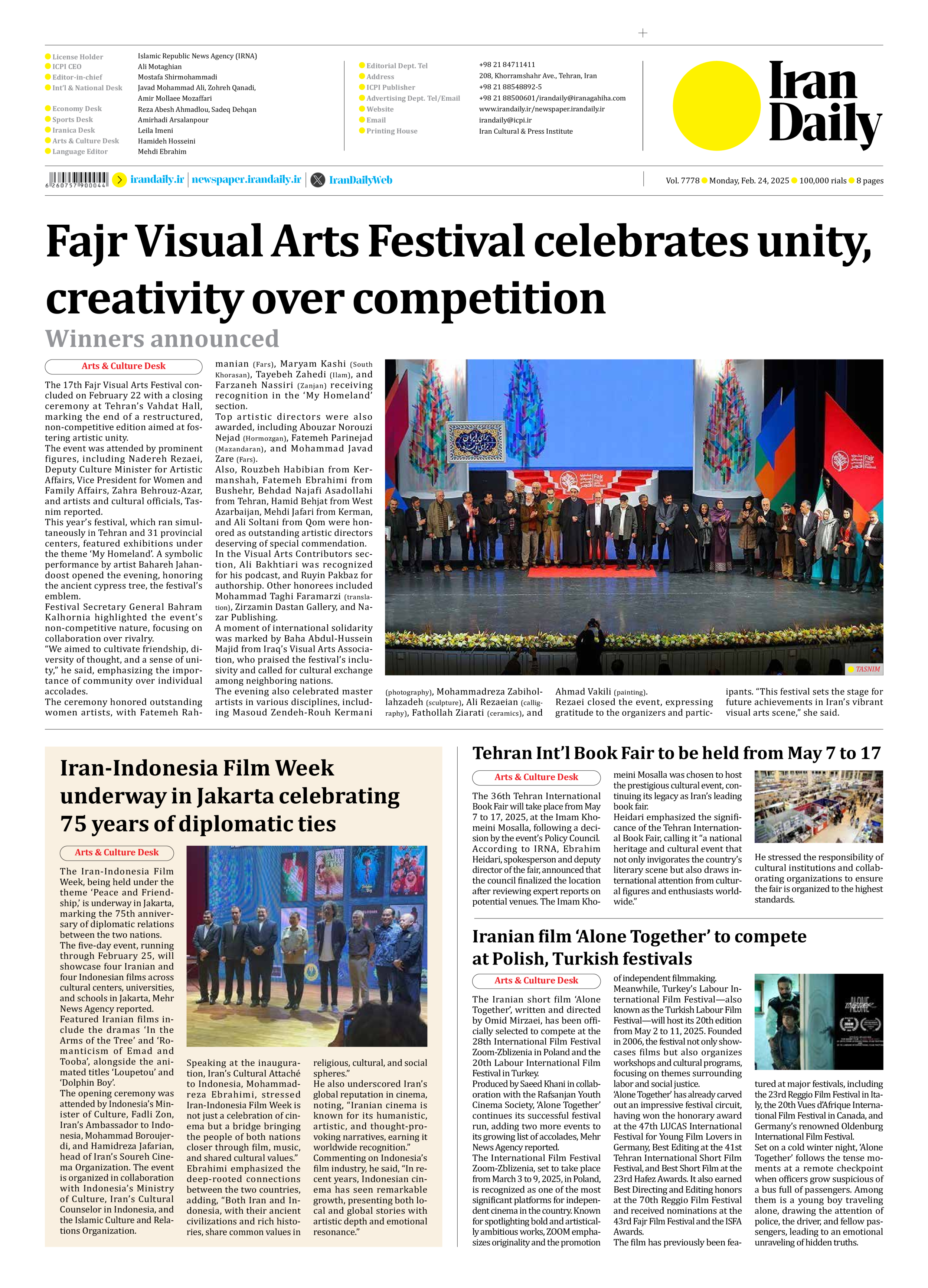
Fajr Visual Arts Festival celebrates unity, creativity over competition
Winners announced
The 17th Fajr Visual Arts Festival concluded on February 22 with a closing ceremony at Tehran’s Vahdat Hall, marking the end of a restructured, non-competitive edition aimed at fostering artistic unity.
The event was attended by prominent figures, including Nadereh Rezaei, Deputy Culture Minister for Artistic Affairs, Vice President for Women and Family Affairs, Zahra Behrouz-Azar, and artists and cultural officials, Tasnim reported.
This year’s festival, which ran simultaneously in Tehran and 31 provincial centers, featured exhibitions under the theme ‘My Homeland’. A symbolic performance by artist Bahareh Jahandoost opened the evening, honoring the ancient cypress tree, the festival’s emblem.
Festival Secretary General Bahram Kalhornia highlighted the event’s non-competitive nature, focusing on collaboration over rivalry.
“We aimed to cultivate friendship, diversity of thought, and a sense of unity,” he said, emphasizing the importance of community over individual accolades.
The ceremony honored outstanding women artists, with Fatemeh Rahmanian (Fars), Maryam Kashi (South Khorasan), Tayebeh Zahedi (Ilam), and Farzaneh Nassiri (Zanjan) receiving recognition in the ‘My Homeland’ section.
Top artistic directors were also awarded, including Abouzar Norouzi Nejad (Hormozgan), Fatemeh Parinejad (Mazandaran), and Mohammad Javad Zare (Fars).
Also, Rouzbeh Habibian from Kermanshah, Fatemeh Ebrahimi from Bushehr, Behdad Najafi Asadollahi from Tehran, Hamid Behjat from West Azarbaijan, Mehdi Jafari from Kerman, and Ali Soltani from Qom were honored as outstanding artistic directors deserving of special commendation.
In the Visual Arts Contributors section, Ali Bakhtiari was recognized for his podcast, and Ruyin Pakbaz for authorship. Other honorees included Mohammad Taghi Faramarzi (translation), Zirzamin Dastan Gallery, and Nazar Publishing.
A moment of international solidarity was marked by Baha Abdul-Hussein Majid from Iraq’s Visual Arts Association, who praised the festival’s inclusivity and called for cultural exchange among neighboring nations.
The evening also celebrated master artists in various disciplines, including Masoud Zendeh-Rouh Kermani (photography), Mohammadreza Zabihollahzadeh (sculpture), Ali Rezaeian (calligraphy), Fathollah Ziarati (ceramics), and Ahmad Vakili (painting).
Rezaei closed the event, expressing gratitude to the organizers and participants. “This festival sets the stage for future achievements in Iran’s vibrant visual arts scene,” she said.







